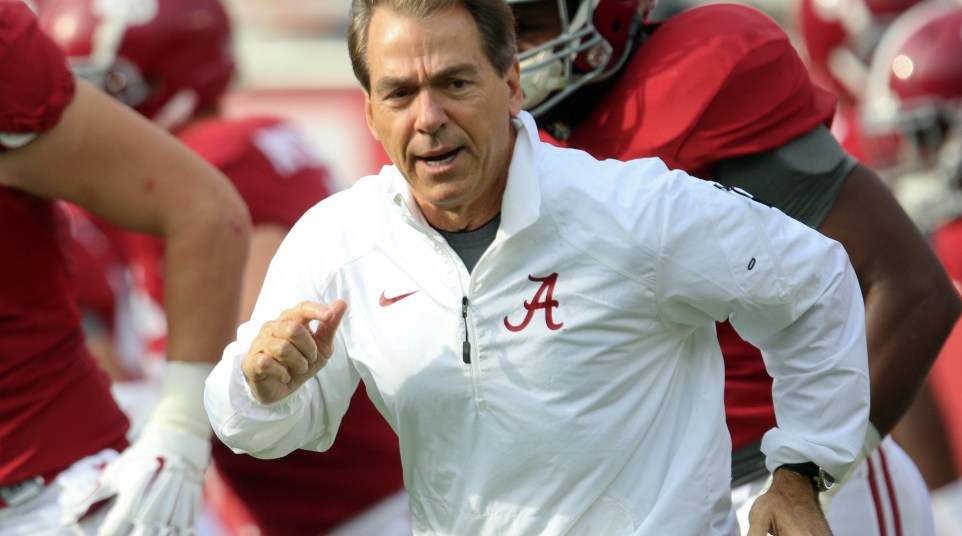Nick Saban unhappy about new SEC misconduct rule
One of the outcomes of this year’s SEC-wide meetings was a rule that prevents graduate transfers with serious misconduct on their record from heading to SEC schools.
The SEC passed the rule in close proximity to the media spotlight on former Georgia defensive linemen Jonathan Taylor, who transferred to Alabama after an arrest for domestic violence charges got him dismissed from the Bulldogs. Accused of domestic violence again while with the Crimson Tide, Taylor since has been dismissed from Alabama. (His accuser later dropped the charges.)
Now the SEC bans transfers with sexual assault, domestic violence or other forms of sexual violence at their previous school. Georgia’s administration was particularly vocal in pushing for the rule.
Alabama coach Nick Saban spoke out against domestic violence at the time the university dismissed Taylor, but staunchly defended his decision to give Taylor a second chance. He remained consistent on the subject when he spoke to AL.com on Thursday prior to his annual charity golf tournament.
Saban told AL.com he was not in favor of passing the rule for several reasons, citing Cam Newton and Nick Marshall as players with disciplinary issues that caused them to get booted from one SEC team before flourishing with another (for the record, neither player has been associated with domestic violence or sexual assault). If not within SEC, those players would attend another major program and succeed elsewhere, Saban said.
Here are some more of his remarks on the subject courtesy of AL.com:
What I’m most concerned about, I just think that we should have the same rules in the SEC as all the other Big 5 schools have because now we’re not just talking about the SEC. We’re talking about having a playoff — no different than the NFL. One division in the NFL doesn’t have different rules, different salary caps, different anything because the league knows that parity is the best competitive balance that you can create.
So when we pass rules that other people that we have to compete against — and if that is really what’s best for the young people that we’re dealing with here, the student-athletes that we’re dealing with – then it should be best for everyone, or otherwise we shouldn’t do it. So I’m hopeful that some kind of way we’ll be able to get the Big 5 together — under the NCAA’s supervision — to try to create rules that we all see in the best interest of student-athletes, which I think we need to be thinking about here: Why do we do this? It is to benefit the student-athletes, to promote opportunities for the student-athletes.
Now, they have a responsibility and obligation to do the right thing. But what I see happening a lot is people don’t get convicted of things. They’re condemned as soon as they get arrested, and I’m not sure that’s fair because I don’t think that’s what our country was really built on.
Saban has started to come across like a grumpy old man of late, muttering and grouching about all sorts of issues like cost of attendance and satellite camps. But at least he’s consistent with wanting the SEC to avoid competitive disadvantages. And in this case he makes some fair points.
The SEC always has allowed some discretion to individual schools. Removing that is akin to empowering federal vs. local government, to oversimplify things. I don’t advocate any SEC school allowing a convicted violent criminal into the unversity just because he may give the football team a slight edge, but I’m not so sure it’s a great idea to let the SEC blanketly dictate policy on these types of issues.

